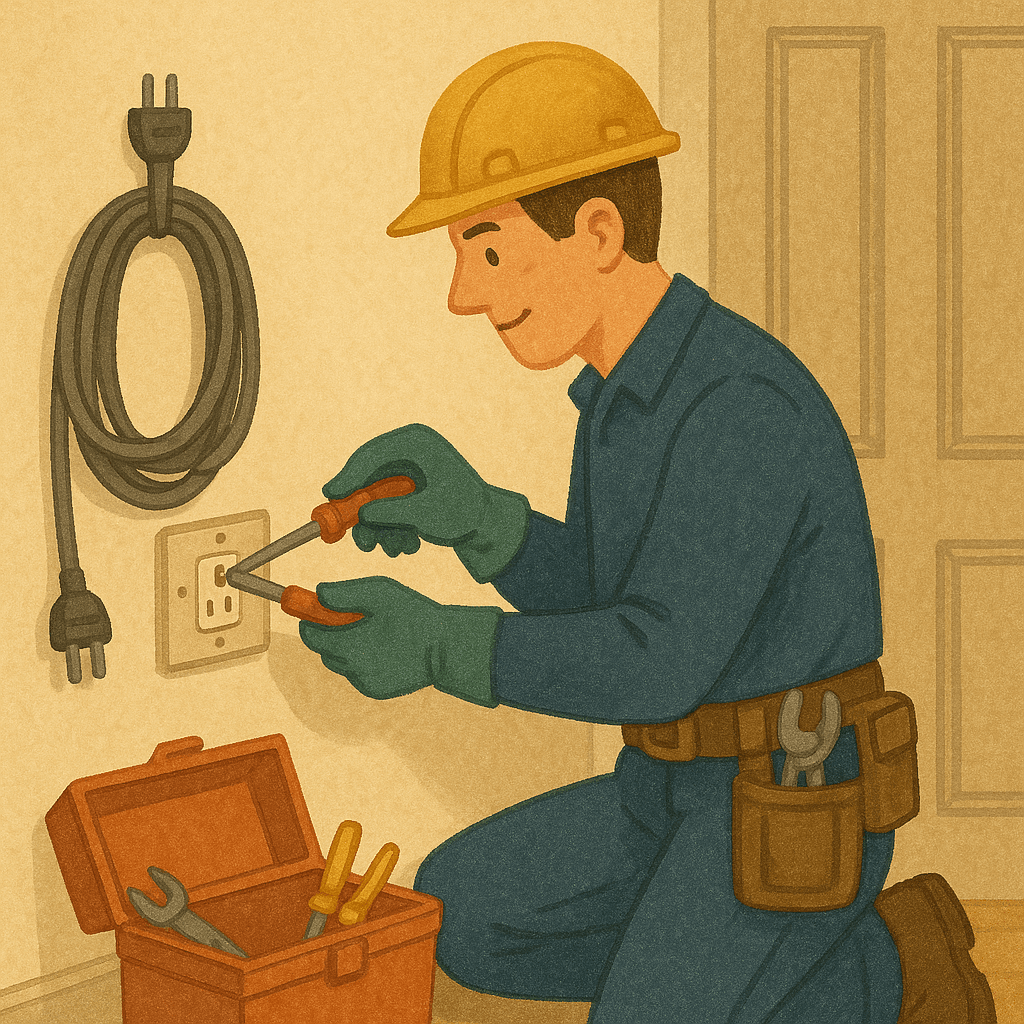If you’ve noticed that your electrical system trips every time you boil water with your old kettle, you might be wondering if the problem lies with your appliances or your wiring. An older kettle can indeed be the culprit behind frequent electrical trips, and here’s why.
1. Faulty or Damaged Wiring in the Kettle
As your kettle ages, so does its internal wiring. Over time, wear and tear on the kettle’s components, such as the heating element and insulation, can lead to electrical faults. A common issue in older kettles is exposed or frayed wires, which can cause short circuits when the appliance is in use. When a short circuit occurs, it creates a sudden surge of electricity, which can trip your home’s electrical system as a safety measure to prevent overheating or electrical fires.
This tripping is a sign that something is wrong with the kettle and, more broadly, your electrical system. Ignoring it can put your entire home’s electrical safety at risk.
2. Overloading the Circuit
Kettles, especially older models, require a significant amount of power to operate. When you use your kettle, it draws a high wattage to heat the water quickly. If your kettle is plugged into a circuit that is already powering other high-energy devices—such as a microwave, toaster, or refrigerator—it can easily overload the circuit. This overload forces your electrical system to trip as a protective measure.
Modern homes often have multiple circuits designed to handle different loads. However, in older homes or if multiple appliances are running simultaneously on the same circuit, the system can become overwhelmed. This is why it’s important to spread the load across different outlets or circuits and avoid overburdening a single circuit with too many high-wattage devices.
3. Wear and Tear on the Kettle’s Heating Element
The heating element in a kettle is the part responsible for converting electrical energy into heat. In older kettles, this element can become less efficient over time, especially if there’s a build-up of limescale or corrosion. This forces the kettle to work harder, drawing more power than it normally would. The extra power usage increases the risk of tripping the circuit breaker, especially if your electrical system isn’t designed to handle the additional load.
Additionally, a malfunctioning heating element can cause sporadic power surges, which your circuit breaker will detect, prompting it to shut off power to prevent damage or hazards.
4. Potential Issues with the Electrical Outlet
While an old kettle can be a direct cause of frequent trips, the problem could also lie in the outlet where it’s plugged in. Over time, outlets can become worn out or damaged, leading to poor connections or intermittent power supply. If your kettle is plugged into a faulty outlet, the poor connection can cause irregular power flow, which leads to your electrical system tripping.
To determine whether the issue is with your kettle or the outlet, try plugging the kettle into a different socket. If the same tripping occurs, the problem is likely with the kettle itself. However, if the kettle works fine in a different outlet, you should have the faulty outlet inspected and repaired by a qualified electrician.
5. Upgrading Your Electrical System
If you live in an older home, your electrical system may not be equipped to handle the demands of modern appliances, including kettles. Older electrical wiring and circuit breakers may be outdated and unable to cope with high-energy appliances. Upgrading your electrical panel or rewiring parts of your home can help prevent overloads and improve the overall safety and efficiency of your system.
An electrician can assess your system and recommend updates that will ensure your home is equipped to handle the load from multiple appliances without causing frequent trips. This is especially important if you regularly experience electrical issues, as it may indicate that your system is not up to current safety standards.
While it’s easy to overlook an old kettle as the cause of electrical trips, it can indeed be a major contributor. The combination of faulty wiring, an overworked heating element, and excessive power demand can lead to your electrical system tripping as a protective measure. To prevent this, consider replacing your old kettle, redistributing the load on your circuits, and inspecting your electrical system for any necessary upgrades.
By addressing these issues, you can ensure that your electrical system functions smoothly and safely, without the inconvenience of frequent trips. If you’re unsure whether your kettle or electrical system is the root of the problem, always consult a qualified electrician for advice. Contact us for more information.











